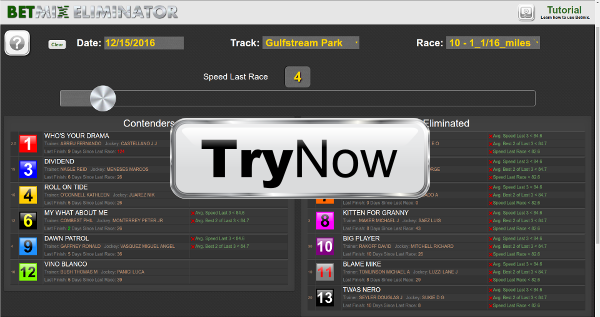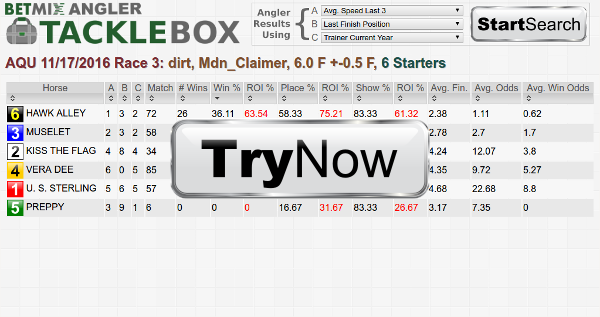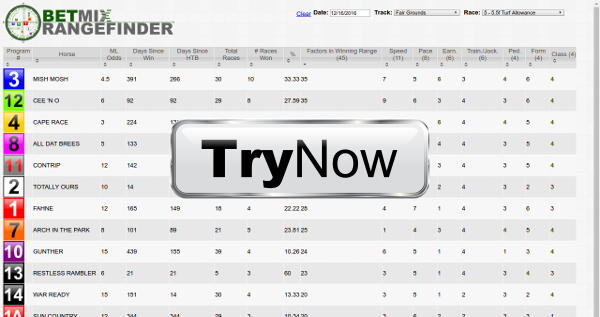
BetMix Labs is a place to play with some of the new handicapping projects we have been working on. You can find a description of each of the tools below. Think of this as a playground where you can experiment with different ways to analyze a horse race. We hope that these tools will generate feedback and ultimately lead to better handicapping methods.
Let us know what you think of these tools, what you like and dislike about them, and above all we hope that they encourage you to think of new ways to handicap. Send those ideas to us and maybe they will eventually be part of BetMix Labs. Have fun!
Strengths: Good at analyzing more common race types, medium field sizes, and races where horses have a deeper racing history.
Weaknesses: In some cases, the winner will be tossed early. Using the example above, a horse may earn a strike for Speed Last Race because it had a bad trip, or maybe it was running in a race very different from today’s race type and earned a poor figure because it didn’t like the surface or distance. Always take a second look at horses that have been eliminated to see if they have legitimate excuses for being struck out!
Strengths: Tackle Box works best in races with less than 8 horses, and when you select meaningful factors to use in the analysis. The best approach is to look at the Race Profile Stats for the race you are handicapping and pick 3 top ranked factors from different groups. You probably don’t want to use 3 speed factors. A good example would be to use a speed factor, a pace factor and a form factor.
Weaknesses: When you analyze races with large fields using Tackle Box you may not get complete data. You want to use races where you can find a large sample of previous runners who are ranked similarly, and if you have a big field in an uncommon race type you may find that there has never before been a horse that is ranked the same way as one of the horses into today’s race.
Strengths: Range Finder is best at analyzing races for older, more experienced horses, where each horse has more than 2 lifetime wins.
Weaknesses: Range finder will not work at all on maiden races (they have no wins to analyze). It will work on races where the horses only have 1 lifetime win, but not very well. Pay attention to days since last win in the display. This tools uses data from winning races, and if a horse hasn’t won a race in 200 days or more the data is not fresh and the results are unreliable.







